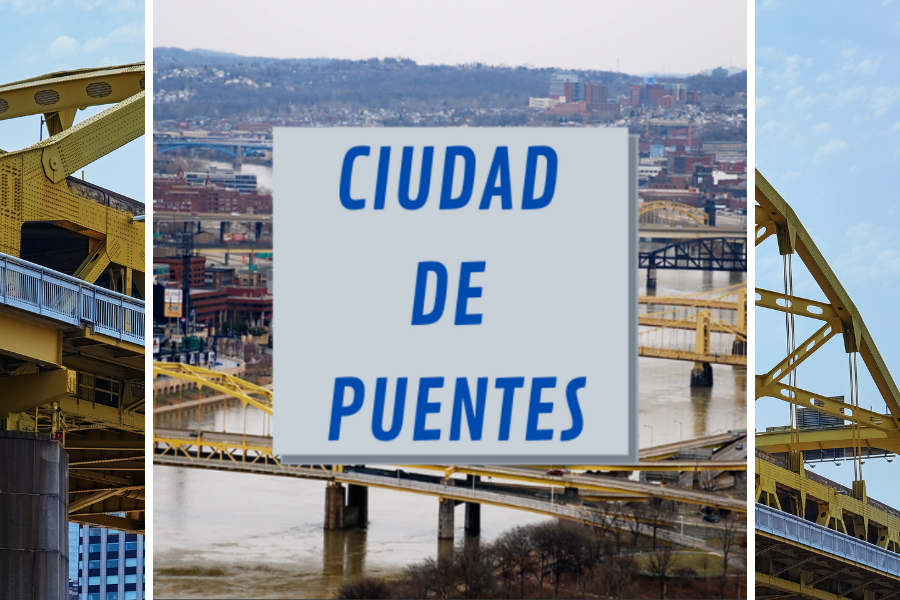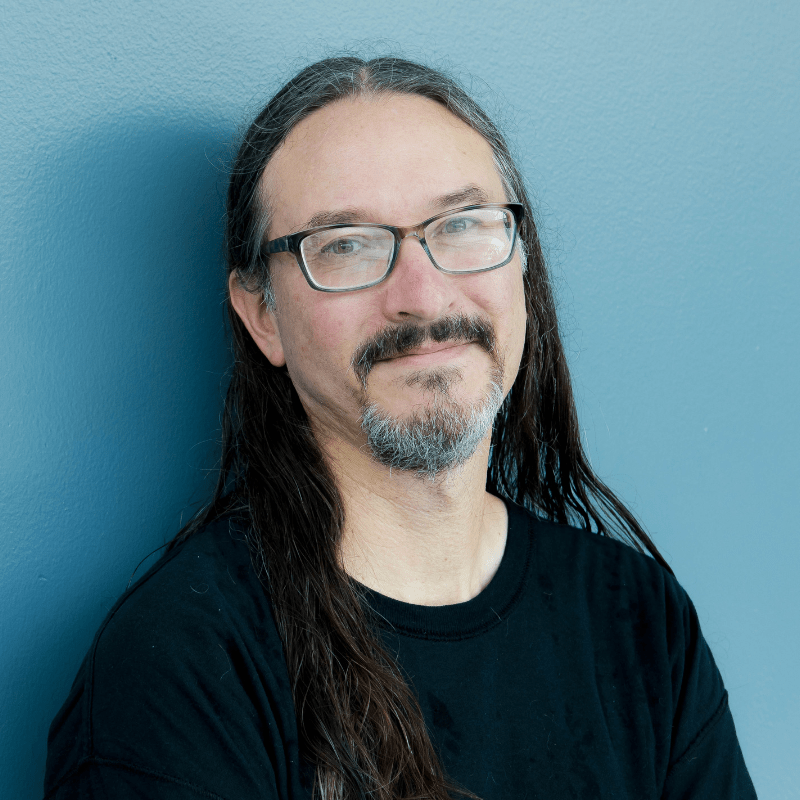
Podcasting Course Tells Stories of Pittsburgh’s Spanish-speaking Community
By KellyAnn Tsai
According to some estimates, there are over 2 million podcasts in the world. Once an unknown medium, today there is a podcast for just about everything.
It’s no wonder, then, that Modern Languages course Podcasting: Language and Culture Through Storytelling is one of the department’s most popular classes. The course gives students an overview of the technical skills needed to produce a podcast–recording, transcribing, and editing–and valuable hands-on experience interviewing and developing compelling stories.
Typically taught in English, the Department of Modern Languages offered the course in Spanish for the first time last fall.
“Given the collaborative nature of creating a podcast, we knew this course would provide a great opportunity to connect our students to the diverse and dynamic Spanish-speaking community of Pittsburgh,” said Anne Lambright, head of the Department of Modern Languages and Professor of Hispanic Studies. “By gathering and sharing stories in Spanish, students could not only practice their language skills, but also connect with people in the community they might not have met otherwise.”
Felipe Gómez, Teaching Professor of Hispanic Studies who teaches the Spanish-language course, sees the class as an extension of a longstanding collaboration.
“The Department of Modern Languages’ Hispanic Studies program has a long history of collaborating with the Spanish-speaking populations in greater Pittsburgh through programs such as the Círculo Juvenil Outreach Program and partnerships with WRCT 88.3 FM's radio station. Since the premise of this course is using the podcast medium to center and elevate the voices of those traditionally left out of mainstream media, this was a great opportunity to continue fostering that collaboration from inside the classroom,” Gómez said.
For their course project, Sofia Dunay, Maya English, Emma Jones, Laura Winter, and Ziggy Sheynin, did just that. The group had no prior experience with podcasting, but by the end of the semester they produced Ciudad de Puentes, a Spanish language podcast series on the responses of the local Spanish-speaking communities to the COVID-19 pandemic.
“If you had told me before the class that I would learn the skills to create a podcast, I probably wouldn’t have believed you,” said Winter, a staff member in the Machine Learning department.
The students chose the podcast’s topic based on a shared desire to shine a light on the Spanish-speaking community in Pittsburgh.
“We really wanted to talk about the Latinx community in Pittsburgh, especially because it’s not an extremely large community,” said English, a recent graduate who received a bachelor of science in Biological Sciences in 2022. “We wanted to bring awareness to them.”
“By gathering and sharing stories in Spanish, students [can] not only practice their language skills, but also connect with people in the community they might not have met otherwise.”
The group was also motivated by an interest in science communication. “There were a couple of podcasts we listened to that I thought weren’t great examples of science communication,” said English. With multiple members of the group interested in science-related fields, “we kind of gravitated towards this topic.”
The three episodes of Ciudad de Puentes feature interviews with diverse members of Pittsburgh’s Spanish-speaking community who have demonstrated exceptional fortitude during the pandemic:
- Episode 1: Dr. Diego Chaves-Gnecco, a pediatrician who spearheaded the movement to vaccinate the Spanish-speaking community in Pittsburgh
- Episode 2: Staff members at Casa San Jose, a non-profit center helping Latino immigrants thrive in the Pittsburgh area
- Episode 3: Carlos Antela and Danielle Figueroa, owners of Arepittas, a local Venezuelan restaurant
Together, these stories work together to illustrate how the pandemic has impacted Pittsburgh’s Spanish-speaking community as a whole. “We learned that individual stories can be super influential. Based on the way that you tell them, they can reach a bigger audience, as opposed to covering an entire group within a single episode,” said Sheynin, an incoming junior majoring in Biological Sciences.
The podcasting course also gave students a valuable opportunity to make new connections and engage with their local community. For some, conducting these interviews was their first experience conversing with native Spanish speakers—a critical experience for any student looking to advance their language skills.
For Winter, who has over thirty years of Spanish under her belt, the course was the catalyst to start a language exchange with Figueroa, who is featured in the podcast’s third episode. “She hasn’t had a chance to learn much English. Pretty much all her time is spent getting the restaurant off the ground,” she said.
The students say they have come away from the course with a greater appreciation for podcasts and the skills needed to develop a compelling narrative in an audio-only medium.
“We think it’s easy to create a podcast, but through this process I realized there are so many more details that you don’t think about when you’re just a listener,” said Sheynin. “It’s been a valuable experience learning how to tell stories and how to truly listen to somebody else.”
“We learned the whole gamut: the technical aspects, storytelling, and interviewing,” Winter said. “Dr. Gómez did a fantastic job of giving us all the pieces, and from there you can really just go for it.”
Interested in learning how to make your own podcast? 82-285 Podcasting: Language and Culture Through Storytelling will be taught in English in the Fall 2022 semester.
